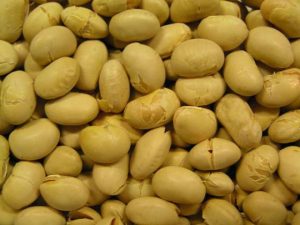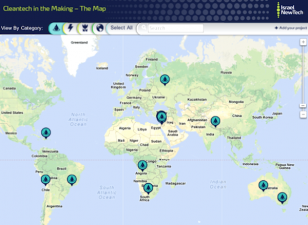
Oil prices and food prices are interconnected. Wealthy Arab states try to create a food pipeline to stave off riots.
As oil prices once again begin to climb past $100 a barrel as they did in 2008 so too, as in that oil price shock, food prices are rising, too. As then, there are now riots developing in third world nations like Algeria and Tunisia, over food shortages.
In December, The United Nations’ Food and Agricultural Organization noted that food prices have exceeded the high prices of 2008, when the Gulf region was hit particularly hard. The IMF found that inflation skyrocketed almost 16% in the Gulf as a result, mostly driven by high food prices – driven by high oil prices. The Gulf states are reliant on food imports.
This time, the Arab states, led by Saudi Arabia and UAE, have decided to take matters into their own hands, according to Arabian Business. They are using their vast oil wealth to buy up tracts of land the size of small countries in Africa, intending to turn them into agricultural hotbeds to feed their multitudes.
They have paid millions of dollars to the governments of Sudan and Ethiopia, and smaller amounts to those of Kenya, Sudan and Mozambique, for the use of hundreds of thousands of acres of agricultural farmland.
Jenaan, one Abu Dhabi-based private firm invested more than $500 million in Africa, with a 50,000 acre farm in Egypt and 100,000 acres in Sudan, as well as properties in Ethiopia and Tanzania. Only half of the Egyptian crop is sold in Egypt. The rest is sent to the Gulf Arab states.
Needless to say, those countries also need to be able to feed their own people. It is isn’t easy growing food in these temperatures in the best of times. These lands themselves have hunger and malnutrition that approaches 18%. In Egypt’s case, even without peak oil, climate change is cutting down on the productivity of its crops.
Understandably, these nations are alarmed by the “land grab” and are attempting to devise food export policies so that their own populations don’t starve.
“It wasn’t only the prices going high that worried some of the Gulf countries, it was also the fact that, at the same time, a number of major food exporters, decided to impose export bans in an attempt to keep prices down” said David Hallam, an analyst with the FAO. “So what they feared was that not only were they facing high prices, but it might not be possible to secure supplies at any price.”
And that, in turn, makes the wealthy Arab states, with the food crisis for their own rapidly growing populations, only more concerned. High oil prices lead to food shortages, which have destabilizing political effects. Interesting times ahead.
Image: Desert farming in Libya
Related stories:
A Growing Gulf Dependent on Imported Food
Rising Food Prices Behind Riots in Algeria and Tunisia
In the Face of “Nile-lessness” Egyptians Protest Water Shortages



We are Real Estate Agents who provides Good Services to Many Potential Costumers Internationally, Domestically in Ghana.
We Sale Houses, Plot/Lands, Rent, Lease Houses beginning from
One to hundred Bedrooms in a Good Secured Locations. We Sales Completed, Uncompleted Houses and vast farm lands.
ALL OUR PROPERTIES ARE LOCATED WITHING ACCRA AND KASOA, AMASAMAN, GBAWE, SAKUMONO, LASHIBI, BAATSONNA, SPINTEX RD, WEST AND EAST LEGON, ADENTA AREA, SCC OR GICEL ESTATE AREAS AND MORE .
CONTACT MOBILE N0#: +233243040919 /0273 464843.
EMAIL: [email protected]
Thanks.
Buying up cropland in areas with their own food shortages.
I don’t think it’s going to work.
Could be! Desperate situation, all right.